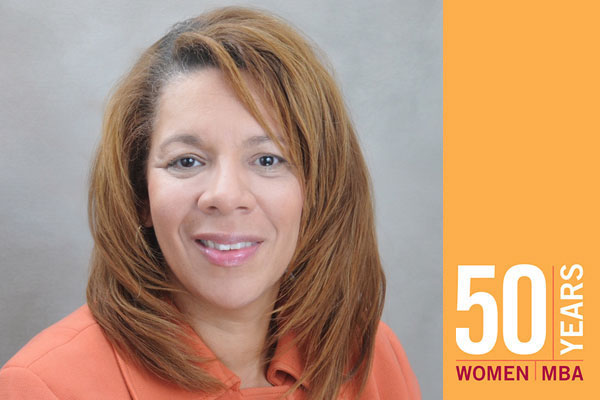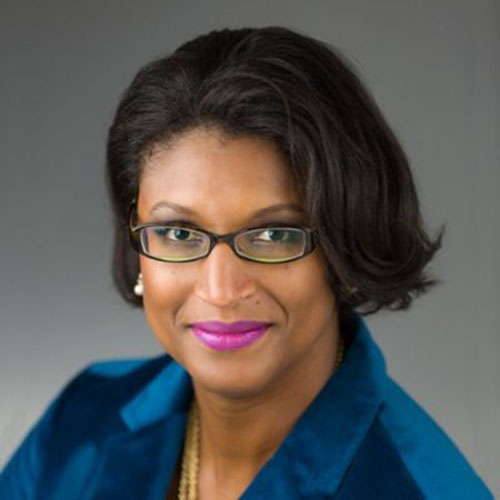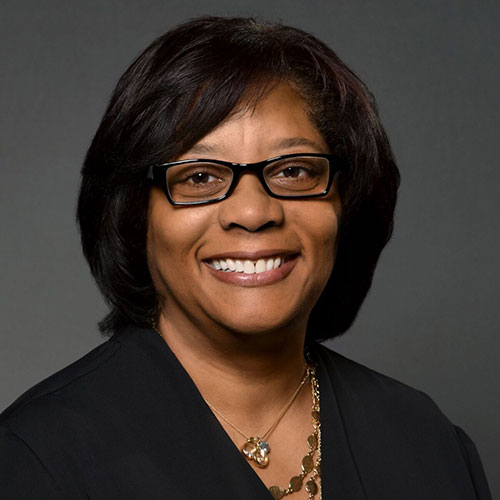
Kym Lew Nelson
Biography
Kym Lew Nelson is president and CEO of the KLEW Company, a procurement consulting and training firm she founded 16 years ago that focuses on strategic sourcing, procurement organization, optimization, and training, and minority-majority supplier linkages for clients around the globe. Her customers include Fortune 100 companies, midsize firms, colleges and universities, and minority-owned firms.
What impact did HBS have on your life and the life of others?
I come from a very entrepreneurial family. My mom started as a waitress at a neighborhood jazz bar in Roxbury and worked her way up to manager before buying the business. And my uncles and cousins started and continue to run one of the larger, minority-owned construction companies in Boston. So I grew up with the idea that one day I'd like to own my own company, although at the time I didn't know what kind.
Instead of launching a business out of HBS, I started my career at Procter and Gamble, working in brand management on products like Pepto Bismol and Crest. After nine years I was ready for a change, but was convinced to stay at P&G. One of my colleagues mentioned purchasing. I said, "What the heck is that?" As a brand manager I'd been involved in R&D, finance, and sales, but when it came to the supply chain, we were told not to worry about it. In the back of my mind I'd always known it was important to understand product supply—how products are sourced and produced—if I wanted to run my own company or be a general manager, which remained a goal of mine. So I gave it a try.
As it happened, procurement was just beginning to evolve at Procter and Gamble, becoming more strategic and really having a major impact on the bottom line. One of my contributions was helping us make the shift to the longer strategic view—focusing not just on what we were buying today, but on what we were going to buy over the next five years. So in many ways, procurement, which seems boring on the face of it, is really critical to the top-line and bottom-line success of a company. It involves risk assessment, geopolitics, and travel, because you're looking at the whole world to source materials for products and services. Purchasing was much more the sort of environment I wanted in terms of managing people and having an impact on many facets of the company, such as bringing in new products, innovations, and suppliers as well as adding value to the company. And it afforded me the time to finally have children. I could not even think of doing that when I was working in brand, which was so competitive that you didn't want to take any time out for fear of missing something.
After just over 10 years in purchasing, Procter offered buyout packages to anyone on staff. I was the first black woman promoted to director level in procurement and was on target to move to senior executive. They didn't want me to leave. But in my mind, it was the right time to start my own business. So I did a little due diligence and determined that there were enough companies who needed someone with my skills—or needed a company to teach those skills—that a demand existed. So I left Procter on a Friday, and by the following Wednesday I had my first contract signed. And I haven't looked back since.
Being a black woman with a degree from HBS has been a blessing and a challenge. As a blessing, it adds credibility to what you say and do in the work environment. But it is also a challenge, as people can have false impressions of you as an aloof, arrogant, know-it-all. They tend to challenge what you say, especially as a black woman. I only play my HBS card when needed and am very strategic about when I bring it up. Many people do not know I went to HBS until after they get to know me and my capabilities, or when they seem to think I am far below them—and I am ready to challenge their ignorance.
When I think about those who are just starting their careers, I have a few pieces of advice that I'd like to pass on: First, don't feel pressured by what others think you should do. When I started my company, I was given so many different models for how to make it a multimillion dollar company. My response was, "I don't want that. I want a company that is small, manageable, enjoyable, and allows me time with my family and for myself." And that is what I did. Remember—your decision!
One other suggestion I would offer is something that people have heard many times before, but it bears repeating: develop your network. HBS had a significant impact on my life in that regard—the contacts I made have been extremely helpful not only as I started and managed my own company, but also on a personal basis. I do regret that I didn't reach out more, to meet others of all races. Recently I've worked with HBS senior lecturer Andy Wasynczuk (a former classmate in Section G) to develop a couple of cases and have returned to campus to teach 2nd year students in negotiations using those two cases—so in that sense, I'm continuing to meet people, teach, and stay connected to the School, which I enjoy.

